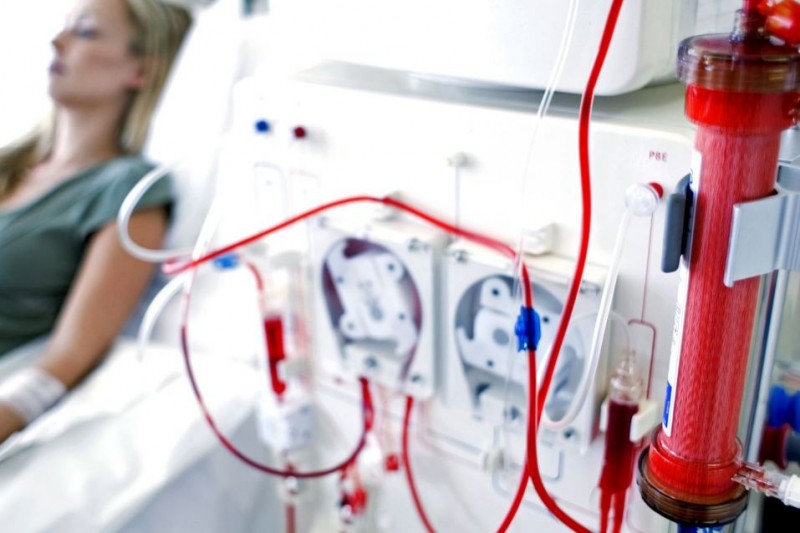
Maintaining a healthy body is essential for overall well-being, and every part of our body plays a vital role in ensuring our health. The kidneys, in particular, are crucial organs that help purify the blood and detoxify the body. To keep the body healthy, it is imperative to ensure the kidneys are functioning optimally. Unfortunately, kidney-related issues are increasingly prevalent in younger individuals today, often attributed to conditions like diabetes, obesity, high blood sugar, poor lifestyle choices, and diet. When the kidneys are compromised, they may cease to function effectively, leading to a reliance on dialysis to filter the blood. This article explores the importance of kidney health, the concept of a kidney-friendly diet, and dietary recommendations for dialysis patients.
The Significance of Kidney Health:
The kidneys are vital organs that perform several essential functions in the body. One of their primary roles is to filter waste products and excess substances from the blood, which are then excreted as urine. In addition to waste elimination, the kidneys also help regulate blood pressure, balance electrolytes like sodium, potassium, and calcium, and contribute to red blood cell production by releasing erythropoietin, a hormone that stimulates the bone marrow.
However, various factors can affect kidney health, leading to conditions such as chronic kidney disease (CKD) or kidney failure. Some of the common factors contributing to kidney problems include:
Diabetes: High blood sugar levels can damage the blood vessels in the kidneys over time, reducing their ability to filter blood effectively.
Obesity: Excess body weight can increase the risk of kidney disease, as it often leads to conditions like hypertension and diabetes.
High Blood Pressure: Uncontrolled high blood pressure can damage the small blood vessels in the kidneys, impairing their filtration function.
Poor Lifestyle Choices: Smoking and excessive alcohol consumption can harm the kidneys and contribute to kidney disease.
Unhealthy Diet: A diet high in salt, processed foods, and saturated fats can strain the kidneys and lead to kidney-related problems.
Kidney-Friendly Diet:
A kidney-friendly diet is crucial for individuals with compromised kidney function, especially those who require dialysis. Such a diet focuses on minimizing the intake of substances that can further stress the kidneys, such as sodium, potassium, and phosphorus, while ensuring adequate nutrition and fluid balance. Here are some dietary considerations for maintaining kidney health and supporting dialysis patients:
Limited Sodium Intake:
Excessive sodium intake can lead to high blood pressure and fluid retention, both of which can strain the kidneys. Dialysis patients should aim to limit their sodium intake to control blood pressure and reduce the risk of complications like swelling, difficulty breathing, and fluid buildup around the heart and lungs.
Controlled Fluid Intake:
Dialysis patients need to manage their fluid intake carefully. Excess fluid can accumulate in the body between dialysis sessions, leading to complications. Monitoring fluid intake is essential to maintain a healthy fluid balance.
Moderate Protein Consumption:
Protein is an essential nutrient, but excessive protein intake can produce waste products that must be filtered by the kidneys. Dialysis patients should work with a healthcare professional to determine the appropriate level of protein intake for their specific needs.
Limited Phosphorus and Potassium:
High levels of phosphorus and potassium in the blood can be harmful to individuals with kidney problems. Foods rich in phosphorus and potassium, such as dairy products, nuts, and bananas, should be consumed in moderation or as advised by a healthcare provider.
Adequate Calories and Nutrients:
It's essential for dialysis patients to maintain a healthy weight and receive sufficient calories, vitamins, and minerals. Malnutrition can exacerbate kidney-related problems, so a well-balanced diet is crucial.
Sample Kidney-Friendly Diet Plan:
Here's a sample diet plan suitable for individuals with kidney issues, including dialysis patients:
Breakfast:
Two egg whites
Rice-based idli (steamed rice cake)
Coriander chutney
Sambhar (a lentil-based vegetable stew)
Tea
Lunch:
Dal (lentils)
Two rotis (whole wheat flatbreads)
Mixed vegetable sabzi (cooked vegetable dish)
Salad
Snacks:
Steamed idli
Soup
Mini uttapam (savory rice pancake)
Dinner:
Vegetable pulao (a rice dish with vegetables)
Stir-fried vegetables
Side salad
Kidney health is paramount for overall well-being, as the kidneys perform essential functions in the body, including waste elimination, blood pressure regulation, and electrolyte balance. Maintaining healthy kidneys is especially crucial for dialysis patients, who rely on dialysis to filter their blood. A kidney-friendly diet can significantly impact kidney health by managing sodium, potassium, phosphorus, protein, fluid intake, and ensuring adequate nutrition. By following a kidney-friendly diet plan, individuals can support their kidney function and improve their quality of life, even when living with kidney-related conditions. It is essential to consult with a healthcare provider or a registered dietitian to create a personalized dietary plan tailored to individual needs and medical history.
How to Look and Feel Your Best as You Age: Top 10 Skincare Tips for Mature Skin
Be careful if you eat too much sweets! Old age will come before time, losses will be serious
Be careful if you eat food wrapped in newspaper, it invites many diseases